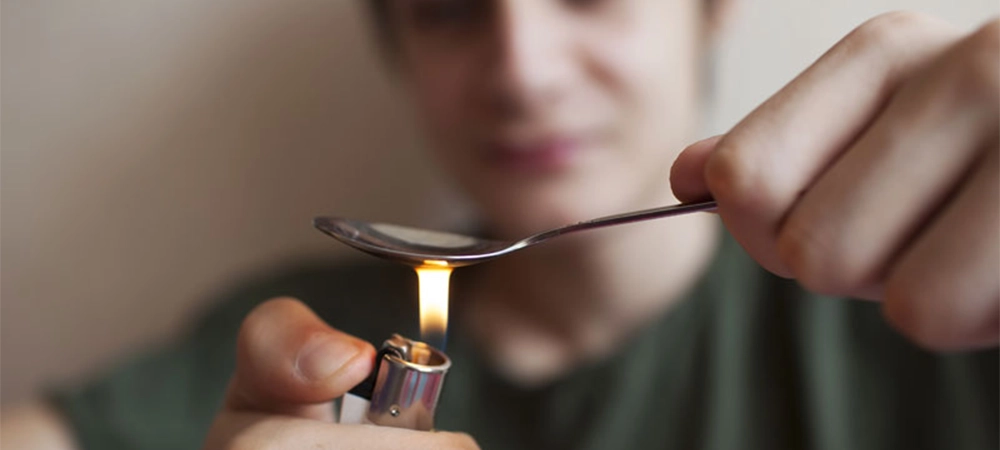Meth addiction can ruin not just the lives of the people who abuse it but it can also affect their family and friends negatively. If you are trying to learn about the ways that you can help your loved one to overcome meth addiction, then this post is for you. The first step is to prepare yourself and understand as much as you can what meth addiction is as well as its effects.
It’s important that you gain perspective on why your loved one finds it difficult to kick the habit. It could be that even if he or she wants to quit, the desire to keep on abusing the substance is just too strong. Knowing this, you’ll understand how crucial your understanding and support for your loved one’s treatment and recovery is. Let’s begin by learning about meth and its effects.
What is Meth?
Meth is short for methamphetamine. This drug can be produced legally and it is called Desoxyn. It is a prescription medication for patients who have severe ADD (a.k.a. Attention Deficit Disorder). It is also prescribed for narcolepsy and obesity but only when other medications were not as effective as a treatment for such conditions. Desoxyn is also used in creating drugs such as Ritalin and Adderall.
Meth that has been illegally produced is usually in powder form which is white and odourless. It can be taken orally, injected, snorted, or smoked. There is also a variant of meth called crystal meth. It is in the form of bluish-white small crystals that are smoked and is very potent. Other names of meth are crank, crystal, ice, and glass.
Effects of Using Meth
Any use of illegal meth is considered to be abuse. Meth is similar to crack cocaine in the sense that it gives the person that “rush” when it is injected or smoked. This increases the heart rate as well as the blood pressure. It also affects the neurotransmitters in the person’s brain, inducing high levels of pleasure. The rush from meth can last to about half an hour.
When the rush has subsided, people who use meth can continually feel the high which can last up to about eight to twenty-four hours. Those who abuse the substance are known to be able to stay up for several days at a time since they have been binging.
How long the high lasts depends on the way that the substance is consumed. For example, injecting it will produce a stronger kind of high compared to snorting or smoking. However, its effects can subside much more quickly.
As mentioned above, meth can raise the heart rate and blood pressure, more so when consumed in high doses. It can also lead to seizures, overheating, and coma. If the person fails to get medical attention when such effects happen, then it can lead to an overdose which is fatal.
Understanding Meth Addiction
Meth is a highly addictive substance. Some people get hooked after just the first use. This is because of the powerful effects that meth has on the brain’s reward system. It makes the person feel euphoric, alert, and confident as a result.
Compared to cocaine, meth can release thrice the dopamine amount, making it undeniably addictive to those who use it. Since meth makes the brain produce more dopamine than it normally does, the reward system of the brain becomes rewired. This causes the person to abuse and binge to get that high. Ultimately, this behaviour takes over his or her life.
It’s difficult to overcome meth addiction because it changes the brain’s reward system and impairs the person’s decision-making capabilities. Nevertheless, it is not impossible. With enough guidance, support, and willingness to change, a person with meth addiction can recover fully and be healthy again.
Related article: Meth Addiction and Its Effects on the Body
What are the Available Treatment Options for Meth Addiction?
Meth addiction can cause severe side effects on the psychological, physical, and behavioural well-being of a person. It does not only affect the individual but also his or her family and friends. For anyone seeking help to combat meth addiction or help a loved one who is known to abuse meth, there are treatment options available.
Treatment of meth addiction basically starts with medical detox. During this time, the substance is being weaned out slowly from the person’s body. With medical detox, the person recovering from addiction is under the supervision and care of medical professionals. This ensures that the client remains comfortable and safe for the whole duration of the detox process.
After the medical detox is completed, the next step is to encourage the client to undergo behavioural therapy. This includes Cognitive Behavioral Therapy or CBT, the Matrix Model, as well as contingency management interventions. These have been known to effectively assist the client in recovering from meth addiction.
What is Cognitive Behavioural Therapy?
With CBT, the client can learn about new ways to help him or her deal with stressors. It is important to understand these stressors because they trigger the person’s desire to go back to using meth.
The sessions of this kind of therapy help the client to recognize his or her reactions to the environment as well as the emotional cues which can aid in stopping impulsive responses such as drug abuse. There are steps in the therapy that introduces healthy behaviours whenever a risk of drug use presents itself to the client.
What is the Matrix Model?
With this approach, the client undergoes a program that lasts for 16 weeks. It involves behavioural treatment and therapy. There are also sessions for family education, group counselling, and individual counselling. The client is highly encouraged and is continually motivated to discover activities he or she can enjoy without any form of drug use.
If you have a friend or family member who is recovering from meth addiction, do take advantage of the sessions for family education. This will give you further insight into the recovery process and what you can do to support your loved one when the sessions are completed.
What is the Contingency Management Intervention?
This kind of intervention for drug abuse is based on motivating the client by employing the reward system. The program and the therapist working with the client can give incentives when the client accepts treatment and maintain abstinence.
Studies have shown that this model is effective and can really help the person overcome the desire to start using meth again. As a support group of your loved one, try to learn as much as you can about how you can encourage him or her to continue with abstaining from using meth.
How to Overcome Treatment Barriers
The addiction that arises from drug abuse is the greatest barrier to seeking and receiving treatment. There are many ways that a person can be rehabilitated. An example here is when the meth abuser has been court-ordered to be treated. This is usually a condition in lieu of being sent to jail.
While this may be against the will of the person because he or she is not yet willing to give up the habit, it has been known that the result is just as good as those that enter treatment willingly. Therefore, any road to rehabilitation will often lead to the person finally being able to kick the meth addiction. Nevertheless, it would be better if there is support from family and friends.
If you are trying to find ways to help your loved one overcome meth addiction, it is best if you take all the necessary steps to prepare yourself for the time when you will be approaching him or her. For example, learn as much as you can about meth addiction and know about the different treatment options that are available in your city.
Develop a plan along with your family and friends to help your loved one to enter into treatment. You can ask the help of professionals to guide you in this step. An intervention, whether formal or informal, can be greatly effective to get him or her to start treatment. It should be timed well when the person is not high so that he or she can think clearly and can hear you out. You can always help your loved one and never think that it is too late to do so.
Related article: How to Set SMART Goals for Substance Abuse

How to Approach a Loved One with Meth Addiction
Approaching your loved one and inviting them to seek help for their meth addiction can be a difficult and challenging time for both parties. Meth users often feel that they are not abusing the substance and that they are still in control of their habits and behaviours. Therefore, they believe that they do not need to seek help. Here are some of the steps that you can take to make approaching your loved one more effective.
Consult with a Medical Professional
After you’ve read as much as you can about meth addiction, it would also be helpful to you if you can talk to a medical professional. Ideally, it can be a psychiatrist specializing in addiction. You can talk to the specialist and ask all of the questions that you may still have.
The specialist can help you understand further why it’s difficult for a person with meth addiction to quit or to even accept and confront that there is a problem. The psychiatrist can also guide you on how you can effectively approach your loved one.
Don’t Lecture
There are many things that you can do to help. But there are also several things that you should avoid when you’ll be attempting to talk to your family member or friend who has meth addiction. For example, don’t threaten, lecture, or preach to the person. No one wants to be told what to do. You may just be rejected and pushed away.
You may get more than eye-rolling if you start preaching to them about the bad effects of drug abuse. Chances are that these people already know those effects and in their mind, they do want to quit but can’t. It doesn’t help if you go for the hard sell in trying to convince them to stop.
Choose an Appropriate Time
Timing is also an important factor when talking to your loved one about the situation. Don’t argue with them when you know that they’ve been recently using the substance. You won’t be able to talk to them properly and at its worst, this may lead to arguments or violence.
Talk to them calmly when they are sober so that they can absorb what you have to say. When you talk to them, try not to be confrontational or combative. Usually, when that’s the case, you’ll be met with anger and rejection. Practice what you have to say first and time it properly so that it will be received well.
Stay Calm
No matter how angry or frustrated you are with the person, try to be as calm and in control as possible. You don’t want to threaten them because they will either just pull away, refuse to listen to you or they can also fight back and hurt you. These are some of the things that you should try your best to avoid.
Remember that you are the one who should be in control. You ought to be the stronger person but don’t fight the person to just get your way. Be compassionate and understanding so that both of you can communicate and listen to each other better.
Be Encouraging
Some of the best ways to kick a bad habit is to replace it with good ones. To do this, you can talk to your loved one, not necessarily about giving up the habit and seeking help as they may not want to hear that. Instead, you can encourage them to do things with you.
You can start by inviting them for meals where you both can prepare and cook good food. This will give them a sense of what it’s like to not be on a constant high. You will also give them a chance to relax to you and that will pave the way for better chances of communicating to them the idea of seeking treatment.
Another example is asking them to join you for some physical activities. It can be just walking during the afternoons or even going to the gym on weekends. Again, you’re not outright telling them to stop abusing meth. What you’re doing is introducing alternative activities that can be both fun and healthy.
Don’t Feel Guilty
Expect things to not be easy. You have to be strong when dealing with helping a loved one with his or her meth addiction. If you think that things are not going too well and there is very little hope for things to improve, never feel guilty about it.
You should know that you’ve been doing a great job at helping your loved one to recover from the addiction. You should also accept that you can only do so much. You may need to approach other family members and other people who can about the person so you as a group can talk and think of ways on how you can help.
Don’t Lose Hope
Lastly, when all things are just not looking well, never lose hope. Your perseverance to help your loved one will surely pay off. Remember to do the steps we’ve highlighted in this post so that you’ll have an easier time preparing for your talk with your loved one.
It’s also important that you take care of your own well-being. When things get rough, it’s crucial that you also get a chance to talk to someone about your struggles. Approach a friend or another family member that you can talk to about these things.
Another option is to go to a therapist yourself so that you can have your feelings processed. You may have feelings of guilt, anger, or frustration and these are not healthy to keep. Find ways to not only help your loved one but also help yourself remain strong and healthy.
Final Thoughts
Hopefully, this post has been able to provide you with substantial information on what is meth and what are the effects of meth. Most especially, this post hopes to prepare you for approaching your loved one and talking to him or her about seeking treatment for the addiction. It will not be an easy road but your patience and persistence is necessary for him or her to see that there is still life outside of being enslaved by meth addiction.
Meth addiction can lead to overdose and death. Anyone suffering from meth addiction deserves to be given a second chance at life. As a family member or friend of a person with meth addiction, extend as much help as you can so that he or she can recover and live life anew.
If you have any comments or questions about helping a loved one overcome meth addiction, feel free to send us a message and we’ll get back to you.
Related article: How Much Does a Drug Addiction Rehab Cost in Canada?







